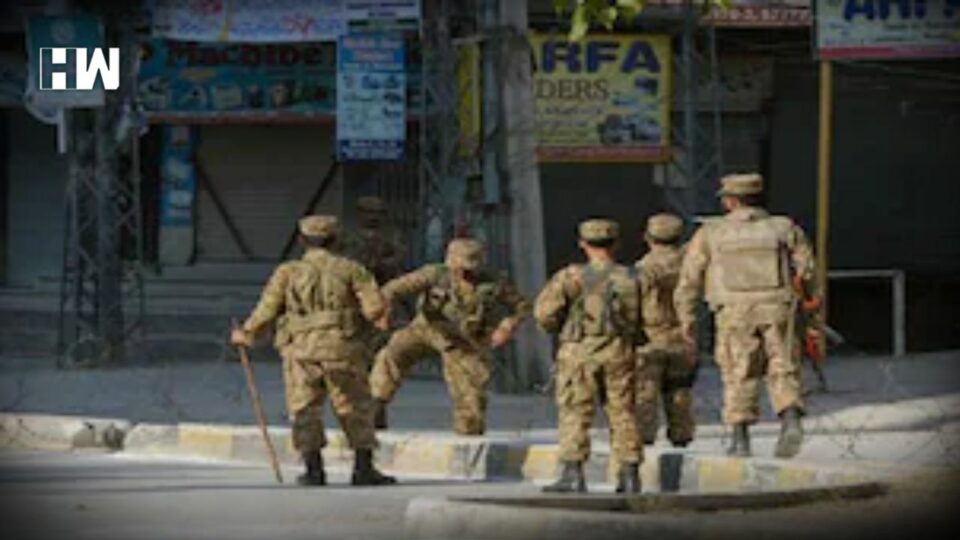Gwadar is considered a key destination for the China-Pakistan Economic Corridor (CPEC) and is widely seen as the main plank of China’s Belt and Road Initiative (BRI). The local residents of Balochistan have long been cut off from any benefits and paybacks.
Islamabad: A “de facto curfew” has been imposed in Pakistan’s Gwadar after a crackdown on a local rights movement, Al Arabiya Post reported. The Balochistan government has imposed Section 144 of the Criminal Procedure Code that allows a ban on all kinds of rallies and protests.
Authorities have suspended the internet service, mobile phone networks and landline in Gwadar, Jevani, Pasni and Ormara cities of Makran division. Police have reportedly arrested more than 100 supporters of the movement. In addition, Gwadar police has lodged an FIR against Haq Do Tehreek leader Maulana Hidayat ur Rehman on charges of murder, attempt to murder, provoking the people for violence and other charges, as per the news report.
A sit-in protest has been taking place outside the main entrance of the Gwadar port for more than 50 days. The protests turned violent during the last week of December, leading to clashes between the police and the protesters. Haq Do Tehreek (Gwadar Rights Movement) has been staging a sit-in in Gwadar city.
Protests led by Haq Do Tehreek leader Maulana Hidayat ur Rehman Baloch have been taking place in Balochistan. The demonstrators blocked the main airport road and the road leading to the port. The Maulana had even asked the Chinese to leave the port city, according to Al Arabiya Post report.
Maulana Hidayat ur Rehman Baloch has criticized the heightened security and check posts in Gwadar. The sit-in was peaceful until Maulana Hidayat ur Rehman Baloch closed the main entrances to Gwadar port and asked Chinese nationals to leave the port city. Rehman and his followers reached the site with weapons and threatened armed resistance if their demands were not addressed.
Also Read:President Security Breach In Rajasthan, Engineer Suspended For Trying To Touch Murmu’s Feet
In 2021, Maulana Hidayat ur Rehman Baloch led a similar protest that lasted for 32 days. Some improvement was made, however, many of the issues continued to exist. On October 27, 2022, Rehman and his followers started staging another sit-in and criticised the government for not working on its commitment, as per the Al Arabiya Post report.
Tens of thousands of protesters, including women and children, blocked an expressway leading to the Gwadar port as the government did not fulfil the demands before the deadline. The protests continued in December and the situation turned ugly on December 26 after a strike call as police and the protesters engaged in a face-off, according to the news report.
The law enforcement officials started using tear gas as the mob attempted to attack a police station, leading to several arrests. As per the news report, Gwadar has also been cut off from the rest of the world as the authorities have suspended the internet service, mobile phone networks and the landline in Gwadar, Jevani, Pasni and Ormara cities of Makran division.
Taking cognizance of the police crackdown on protesters, the Balochistan High Court directed the deputy commissioners of Gwadar and Kech as well as their police officials to submit their written explanations by January 15, as per the news report.
Gwadar is considered a key destination for the China-Pakistan Economic Corridor (CPEC) and is widely seen as the main plank of China’s Belt and Road Initiative (BRI). The local residents of Balochistan have long been cut off from any benefits and paybacks.
Projected as the “future Dubai” in the region, the people of Gwadar remain deprived of access to clean and other essential facilities. Gwadar, being a centre of economic development did not manage to change the fate of local residents, as per the Al Arabiya Post report.
The Haq Do Tehreek has been carrying out protests for various demands, including the ban of illegal trawlers in Balochistan’s water, a reduction of security checkpoints and liberalization of trade with Iran, as per the Al Arabiya Post report.
In recent years, the people of Balochistan have alleged that non-Balochis, especially those from Punjab, rule over the province and locals of the region do not get the benefit of economic development, as per the Al Arabiya Post report. The fishermen in Gwadar have been facing numerous problems, like being required to have tokens and being assigned a fixed time for using the sea for fishing.
Residents of the port city have raised complaints about being deprived of basic facilities, including healthcare, electricity and clean drinking water, as per the news report. In 2016, the Federation of Pakistan Chambers of Commerce and Industry (FPCCI) expressed concern over the demographic change in their report, predicting that the Chinese would be more than native Baloch by 2048.
(Except for the headline, this story has not been edited by HW News staff and is published from a syndicated feed.)
As an independent media platform, we do not take advertisements from governments and corporate houses. It is you, our readers, who have supported us on our journey to do honest and unbiased journalism. Please contribute, so that we can continue to do the same in future.

